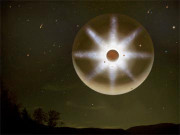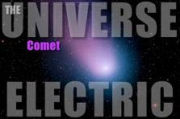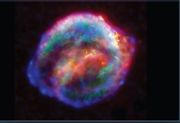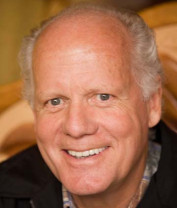|
|
"Alien Sky" -
Questioning the Myths in our Religions, Part 2
by David Talbott
|
|
December 23, 2009
|
|
|
After quoting substantially from my previous article, a reader and friend
stated his "complete disagreement" with the heart of the piece:
Mankind is deeply enslaved to the worst of the fruit of the myth
making epic. Altruism, which is a centerpiece at the heart of the
"ONENESS" [a saturnian concept if there ever was one] in all the
religions, is nothing more than a continuation of the compulsory duty
to the Gods. To offer sacrifice so that one may appease the whim of a
power whose actions transcends ones comprehension in order that
one may attain a hope of a lost state of perfection and divine order is
central to the religious themes you give exception.
His note emphasized again the importance of communication on
sensitive issues raised by "Symbols of an Alien Sky." There will be no
escaping the necessity of reconsidering assumptions on all sides of these
issues. Below is my response:
Hi James,
If I understand your question, you are asking on what basis I distinguish
spiritual discernment from the roots of myth.
I do indeed hold that all meaningful "spiritual principles" constitute a
liberation from the myth-making epoch, and the point seems quite
obvious to me. If the principles were not a break from the momentum of
mythological interpretation, they would not be meaningful. Like the
mythic archetypes, the "universality" of certain spiritual principles can be
confirmed by objective investigation, but that's not a reason to believe
any of them, only a reason to ask the question, From what source did this
unusual agreement arise? Did it arise from some external provocation, or
possibly from a less coercive, less noisy, less disturbed heart of knowing
within every human being?
As a rule, I think itís essential to invite people who are following the
reconstruction to find their own paths of exploration and discovery.
Individuals of every conceivable philosophical, religious, and political
persuasion are now immersing themselves in the reconstruction. Making
issues out of our personal experiences and convictions can quickly
become counterproductive. The result will be to discourage people from
following a logical argument whose ground floor is not subjective at all,
but constituted entirely of objective factsóthe well-documented mythic
archetypes.
My general preference is to speak up only when I see a principle of the
reconstruction being misrepresented. For example, Iím not asking anyone
to accept that empathy is essential to cultural health and integrity, even if
I believe it is. Itís just that it would not be historically accurate to say that
a teaching of empathy is a "reification of the Saturn myth."
If someone says, “see every action of another as a either an expression of
love, or a plea for love,” where did that unique perspective come from?
Certainly not from terrifying planets in the sky.
The same issue is posed by the rise of pure philosophy, as when the
archaic idea of the polar god, the stationary actor or driver of the
heavens, emerged in Socratic and Aristotelian teachings as an abstract
principle. Aristotle translated the tradition into a philosophical tenet,
declaring that something in motion required an "actor" to set it in
motion: “So it is clear that in all these cases the thing does not move
itself, but it contains within itself the source of motionónot of moving
something or of causing motion, but of suffering it.” (See Aristotle,
Physics 29-31).
To the east, however, others transformed the same underlying mythology
into the idea of perfect rest, stillness, or silence, transforming the
unmoved actor into the heart of consciousness, where they discovered
something extraordinary and not colored or affected by myth at all. The
Hindu Upanishads are a poignant example of this transformation before
it was complete. Here the deeper principles are emerging to stand on
their own, eventually to be freed entirely from myth.
Personally, I find the simplest spiritual teachings more interesting and
more profound than Aristotleís abstraction, but one thing is certain. In
his metaphysics of the unmoved mover Aristotle has left the rich
mythology of the polar god behind.
Nothing that is free from myth can be called a reification of myth just
because a trail can be followed backward to the myth-making epoch.
Prior to the industrial age, virtually all defining features of civilization,
including the major spiritual and philosophical traditions, were
inseparable from evolutionary threads leading back to the mythic age of
the gods. That is why I've suggested that the Polar Configuration can be
called the "Great Analogy." Civilization as a whole was its illustrative
content.
In other words, Iíve not proposed that the rise of spiritual principles
occurred in the absence of mythic traditions. Humanityís deeper spiritual
discernment involved a progressive reinterpretation of the myths across
millennia, eventually leaving the myths behind. Whenever and wherever
this has occurred a principle must stand on its own, supported only by a
core of human discernment. Then, when a violation of the discerned
principle occurs, it will be recognized, and over time a culture growing in
its appreciation of the principle will refuse to indulge its violation. In
earlier millennia slavery was commonly sanctioned and well-supported by
mythological tradition. It was only "proper" ó the "prescribed way" ó to
subject barbarians outside the gate to the same fate as the celestial
chaos hordes, or clouds of darkness, with which they were globally
identified.
Please keep in mind James, that nothing Iíve expressed here has anything
to do with "altruism" as you defined it. Youíve defined altruism as a call
to sacrifice, and youíre not alone in that. This common interpretation of
altruism is the primary reason I never use the word. Itís quite a
realization to discover that spiritual teachings, when freed entirely from
myth, almost never urge sacrifice on anyone. In contrast, the first
civilizations, arising in the shadow of cosmic catastrophe, found a
thousand ways to incorporate sacrifice into their ritual and magical
negotiations with the gods.
My own (highly subjective!) observation is that when a discerning teacher
speaks of the unity beneath the natural world, the silent core of human
consciousness, or the kinship of life, he is speaking from the vantage
point of awakening human understanding, not of mythology. Even if one
might reconstruct a path backward to the undifferentiated "primeval
unity" of creation mythology, the point would remain that all historic
reification of the Saturn myth has been shed. The principles in question
are then emerging directly from, and finding their confirmation in, life
experience, a present moment. But of course this is all my own subjective
observation, even when I suggest that millions of humans are already on
that path and that many more will come to walk it in due course.
David Talbott
For information on Symbols of an Alien Sky please visit
http://www.thunderbolts.info/resources.htm#Symbols
|
|
|
Permalink to this article.
Public comment may be made on this article on the
Thunderbolts Forum/Thunderblogs (free membership required).
|
|
|
|
|
|
|




